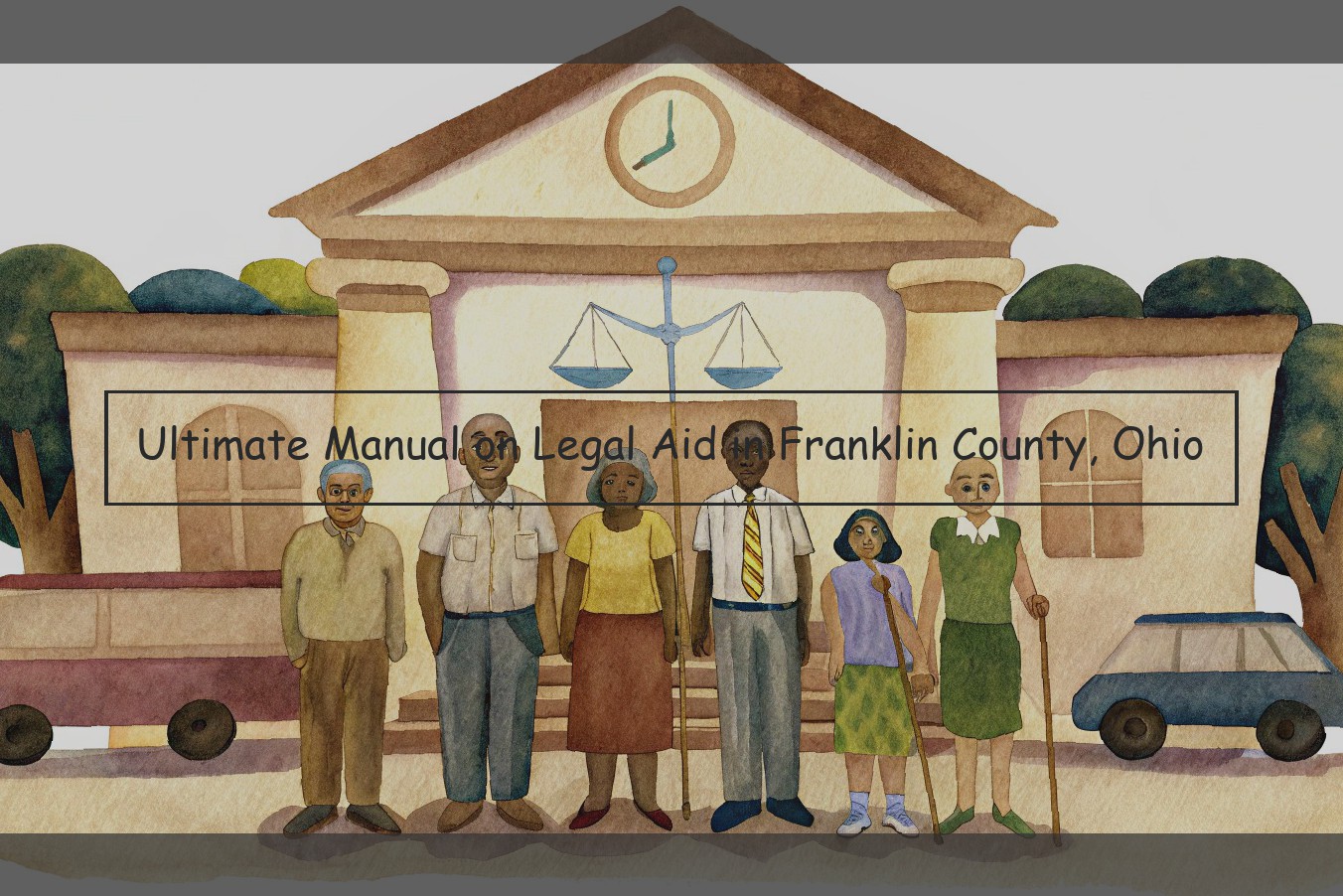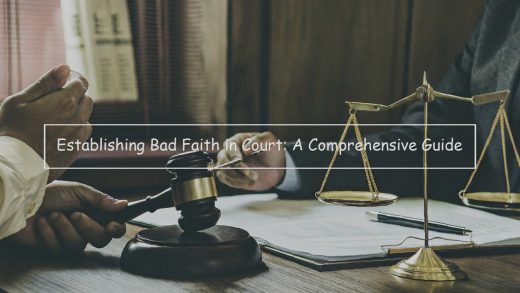
What Is Legal Aid?
Legal aid services, often provided pro bono (free), are available to low-income individuals across Franklin County through a number of different organizations, including the Department of Justice and Legal Aid Society of Columbus (LASCC) and Neighborhood Legal Services of Cincinnati.
Department of Justice
The Department of Justice in Ohio provides free or greatly reduced legal representation to low-income individuals in various types of cases. The Justice Bus program even allows eligible individuals to be represented remotely through videoconferencing. In some cases, the Ohio Office of the Public Defender even works with outside organizations to provide representation for clients in need. Ohio also participates in the National Truancy Prevention Initiative in partnership with several states and other federal agencies. This initiative provides legal assistance to schools to deal with chronic absenteeism.
Legal Aid Society of Columbus
The LASCC was founded in 1913 with an emphasis on serving the needs of the most vulnerable citizens. The LASCC provides access to various legal services , including help with issues relating to family law and estate planning, drug offenses, and income and housing stability. Cases that the LASCC is unable to take on are recommended to private attorneys through an attorney referral service. The LASCC matches eligible clients with pro bono volunteer lawyers with experience in these cases.
Neighborhood Legal Services of Cincinnati
The Neighborhood Legal Services of Cincinnati provides access to legal advice and legal representation in a variety of areas of civil law, in particular for those with financial hardships, seniors, people with disabilities and veterans. With 170 partner law firms, Neighborhood Legal Services of Cincinnati matches up eligible clients with qualified and willing lawyers to take on their case.
Who Qualifies for Legal Aid?
If you require legal assistance, there are certain criteria that you must meet in order to qualify for legal aid. Generally speaking, the income requirements typically vary from 125 percent to 200 percent above the federal poverty line. In addition, applicants must be determined to have a legal issue that a lawyer can assist with, and the situation must warrant the use of legal aid services. Those who are eligible for legal aid will be represented by a paralegal and an attorney at no charge. The attorney will be there to guide the client through the complicated process and work to provide fair representation in court to help achieve their desired outcome. Because legal aid services are committed to protecting the rights of those who cannot afford legal counsel, firm requirements do not discriminate on the basis of race, sex, religion, disability, age or national origin. Applicants will be assessed based on their income, subject to meeting eligibility standards and the suitability of the case for legal aid services.
Prominent Legal Aid Providers
Within Franklin County, there are several reputable organizations and law firms that offer legal aid to those in need. These entities strive to provide comprehensive legal services to various vulnerable communities, from low-income families to seniors.
Legal Aid Society of Columbus
The Legal Aid Society of Columbus is the primary organization dedicated to providing civil legal services at no cost to low-income residents of Franklin County. They offer assistance in areas including housing, consumer law, family law, and access to benefits.
Phone: (614) 224-8376
Website: www.columbuslegalaid.org
K12 Attorneys
This law firm focuses primarily on family law – but with a unique twist. K12 Attorneys specializes in legal representation for low-income families caught in the school system’s catchment. Their goal is to ensure that children with disabilities receive the proper education they are entitled to under the law.
Phone: (614) 481-8100
Website: www.k12attorneys.com
Pro Seniors
Specifically for seniors, Pro Seniors provides legal assistance, especially for issues involving healthcare, public benefits, consumer fraud, and estate planning. They also have a robust legal advice hotline available to seniors throughout Franklin County.
Phone: (513) 345-4160
Website: www.proseniors.org
Immigration and Legal Services of Ohio
This nonprofit organization dedicates itself to helping immigrants and minorities receive a fair chance at justice. They provide legal aid services for immigration issues, refugee resettlement, and guardianship.
Phone: (614) 230-1933
Website: www.immigrationlawohio.org
Applying for Legal Aid
When you have decided to proceed with an application for legal aid, in most cases, the first step is to call the legal aid office to check on availability. In Franklin County, you can reach the Columbus office at (614) 224-8371. A trained intake specialist will ask you a series of questions including income, household size, debt as well as the particulars of your legal matter.
The intake specialist will let you know if your matter is eligible for legal aid and schedule an appointment if necessary. In Ohio, certain matters such as child support and visitation are handled by legal aid without an interview.
During the interview, the applicant will need to provide identification and background information. At a minimum, the following is needed:
If the client wishes, he or she can bring along any additional documents related to the particular legal matter.
For example, if the client is seeking legal aid for help in processing a bankruptcy, he or she would be best served by bringing credit card statements, loan documents, notices from creditors and anything else that he or she can think of to provide a complete picture.
If the legal aid office believes that it can assist the applicant, an attorney will be retained and the case file opened. If the applicant receives a retainer agreement then that person needs to sign the paperwork to officially retain the attorney. It is at this point that the applicant will also receive information regarding payment of any applicable retainer.
In some cases, the attorney may determine that he or she is not able to take on the case at this time, in which case the applicant will be released from the representation.
While legal aid generally provides legal advice and support, it will not pay for representation in a lawsuit. This would need be covered by the client, but legal aid can assist by finding a low-cost or even free attorney to take the case.
Common Legal Matters Addressed
In Franklin County, Ohio, the most significant legal issues that legal aid handles include family law disputes and domestic relations matters, which encompasses divorce, child custody and visitation, spousal support, and child support. This is reflective of national trends within legal aid, which includes a 2017 Legal Services Corporation study that found domestic relations issues made up five of the top ten cases handled by legal aid. One in five low-income households in Franklin County reported experiencing a domestic relations issue. This is somewhat tempered by the fact that legal aid, like many other organizations focused on helping low-income households, has finite resources and many of the issues they face are addressed through the "lawyer in the library" program. However , it is also tempered somewhat by the fact that, when it comes to legal aid organizations employing attorneys, inmate assistants, paralegals and other personnel on salary, resources can be an issue in finding potential new hires who have a connection to the city or want to work there as opposed to in clinics or at other more permanent stations.
While less frequent, housing issues such as eviction defense and landlord-tenant matters are also very common cases handled by legal aid, with a significant majority of low-income households in Franklin County reporting experiencing housing problems. Consumer rights issues are also handled by legal aid in the Franklin County area, although this is a smaller slice of their case load.
Advantages of Legal Aid
Across Franklin County, the benefits of legal aid programs are numerous and impactful. Notably, many eligible individuals and families are able to obtain proper legal representation without suffering a financial strain or hardship. This is a huge advantage in a society where many cannot afford quality legal representation and are not financially capable of adequately funding a defense or a case. As such, individuals who are eligible and able to retain help are afforded many benefits from legal aid. These benefits include:
The right to a fair trial
The right to due process
Representation regardless of citizenship or immigration status
Adequate assistance that suits the needs of clients and individuals
Dismissing technicalities and barriers from legal action
Providing access to adequate justice on a local and state level
Providing support resources, attorneys and volunteers for the poor and disadvantaged
The aforementioned advantages of legal aid programs are what make seeking legal advice from professionals so beneficial. Not only do successful legal aid programs offer respite to individuals and families in need, but they also make our society more just and fair as a whole. That’s a benefit worthy of passing along.
Challenges in Accessing Legal Aid
While the network of legal aid organizations in Franklin County provides a vital resource to those in need of legal representation, access to these services is not without challenges. The first challenge, as in other metropolitan areas, is the high demand for legal aid services. This demand often leads to programs operating near or at capacity. Low-income residents of the county may find that they are eligible for legal aid services but unable to be matched with an attorney to represent them. Although eligibility requirements try to make access to legal aid as equitable as possible, the limited resources of these organizations means that they are forced to triage incoming requests for assistance. Delays in receiving legal counsel can leave individuals vulnerable to losing assets, income, housing, or custody of children. Before June 2016, the Legal Aid Society of Columbus was forced to focus its attorneys’ limited time primarily on divorce cases, which accounted for over 50% of cases heard by the Franklin County domestic relations courts. Even with its expanded focus today, it is able to receive and accept only a fraction of the legal aid requests submitted to it.
The potential issues associated with delays in legal representation are starkly illustrated in cases of domestic violence. A study released by the Ohio Supreme Court in February 2017 found that survivors of domestic violence faced the most significant obstacles to securing legal representation. In cases where both parties in a divorce possess assets or earn an income, even if one spouse is eligible for legal aid services, the divorce process becomes much more complex. The study found that survivors of domestic violence who pursued divorce were more likely than non-survivors to become disappointed or frustrated with the divorce process and face economic insecurity as a result. High rates of divorce, while not unique to Franklin County, may also stress legal aid resources to their breaking point. Although legal aid services strive to provide equal treatment, time restraints and other limitations of legal aid programs mean that not all requests for aid may be honored.
In addition to these challenges, it can be difficult for families to find the time necessary to navigate their way through the justice system. The Franklin County Court System is among the state’s busiest. A busy court system is a certain sign of both strong economic growth and high housing demand. While this combination is typically favorable to legal service providers, the high population of Franklin County means that residents also have a high demand for legal aid.
Legal Aid: What Lies Ahead
As early as 2016, a work group of the Ohio Supreme Court began devising guidelines for certification of legal aid providers, which were finally adopted in May 2019. The work group was tasked with developing the guidelines because some of the community organizations providing legal aid in Ohio were not law firm-based legal aid organizations. The goal was to improve quality and accountability while maintaining flexibility to accommodate the diversity of the legal aid community .
On July 11, 2019, Legal Aid of Franklin County will be participating in a community brainstorming session at the Columbus Government Center. The purpose of the community meeting is to gather input on community needs, gaps in service and possible solutions. The input will be used to help inform the strategic planning process for funding of civil legal aid services for the next two years by the Columbus City Council and the Franklin County Board of Commissioners.



